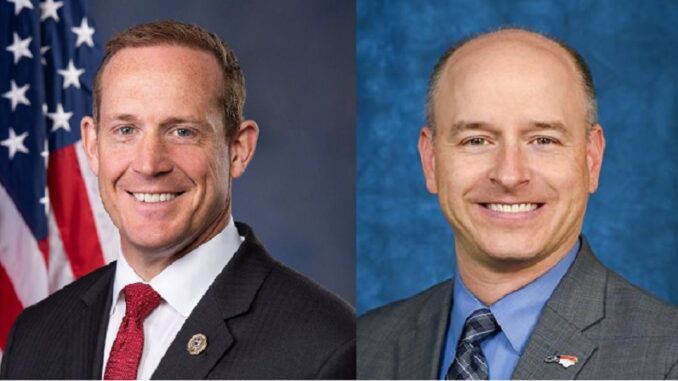
RALEIGH — Democratic Gov. Roy Cooper’s top education adviser’s response to a letter sent by then-U.S. Rep. Ted Budd passed the buck on two questions and refused to answer a third about sexual assaults in the state’s K-12 public schools. The response also tried to change the subject from public to private schools.
The letter inquiring about the sexual assaults of students in North Carolina K-12 public schools was sent to Cooper by Budd last August.
“Children in North Carolina schools deserve the highest degree of protection from predators. A school should be a haven where students can focus on learning without fear of sexual abuse,” wrote Budd in Aug. 26, 2022 letter. “Parents should know that those in positions of power in North Carolina are acting proactively to protect children in all facets of public education.”
Budd included three questions to be answered by Sept. 9, 2022:
- What process or procedure is in place to ensure that a teacher or public school employee is barred from employment if he or she is convicted, or there is an outstanding, credible accusation, of a sex related offense in North Carolina or any other jurisdiction?
- What procedures are in place to screen candidates during pre-employment to prevent abusers from employment in schools?
- What procedures are in place to notify parents when their child is suspected to be the victim of sexual abuse?
The governor’s senior education adviser, Geoff Coltrane, responded to Budd’s inquiry but only answered the first two questions.
In the past two years, the rights of parents when it comes to the safety and education of their children in public school settings have become a national topic and hot-button voting issue, yet Coltrane ignored the third question centering on parental notification entirely.
In his response, Coltrane outlined the use of criminal background checks, checks against sex offender registries, and possible revocation of a teacher’s license for offenders.
Coltrane then passed Budd off to the Department of Public Instruction for details on public school teacher accountability before shifting the focus of the letter to private schools.
“Unfortunately, state law does not require these safeguards for private church schools or nonsectarian academies, even if they receive state funds for student tuition,” Coltrane wrote. “Some private schools perform criminal background checks voluntarily, but neither the background check nor even teacher licensure is required for these schools in North Carolina.”
Coltrane added, “We can work together by asking for more accountability from these schools, and by redoubling our work to support child abuse experts who can quickly investigate and help prosecute abusers if necessary.”
Per records kept by North State Journal’s A.P. Dillon, the vast majority of offenders are public school teachers. Between Jan. 1 and July 24 of this year, 43 education employees have been arrested in North Carolina. Only one of the 43 was a private school employee. Additionally, 21 of the 43 did not have a teaching license on file with the state. During 2022, Dillon recorded 45 such arrests and only five were private school employees.
In his response, Cooper’s adviser also criticized Budd’s voting record on a failed 2021 reauthorization of the Child Abuse Prevention and Treatment Act.
“Supporting H.R. 485, The Stronger Child Abuse Prevention and Treatment Act, which you voted against last year, would be a good first step,” Coltrane wrote. “I trust the safety of children is of paramount importance to you and encourage you to work on behalf of our children’s safety in Congress.”
However, neither H.R. 485 nor the 1988 Child Abuse Prevention and Treatment Act address sexual assaults of students by public school employees. Both bills’ contents focus on funding assistance for programs and research targeting the prevention, identification, and treatment of child abuse and neglect. The original legislation also established the National Center on Child Abuse.
H.R. 485 was passed by the House but died in the Senate after being referred to the Committee on Health, Education, Labor, and Pensions in March 2021.
In his original letter to Cooper, Budd had copied N.C. State Superintendent Catherine Truitt, however, Coltrane’s response letter did not.


